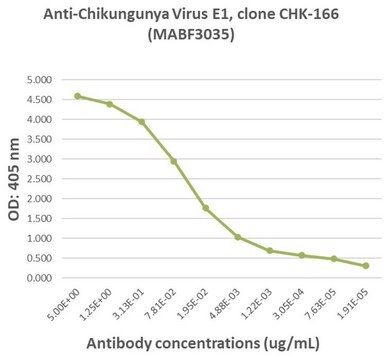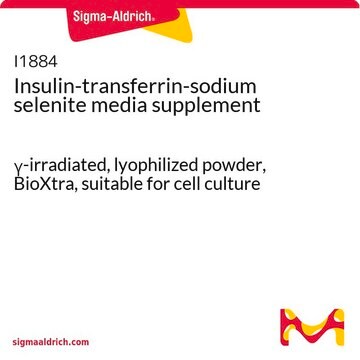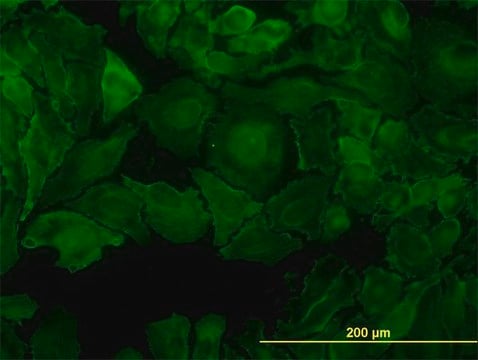MABS1923
Anti-PTK7 Antibody, clone 31G9
clone 31G9, from rat
Synonym(s):
Inactive tyrosine-protein kinase 7, Colon carcinoma kinase 4, CCK-4, Protein-tyrosine kinase 7, Pseudo tyrosine kinase receptor 7, Tyrosine-protein kinase-like 7
About This Item
IF
IP
WB
immunofluorescence: suitable
immunoprecipitation (IP): suitable
western blot: suitable
Recommended Products
biological source
rat
Quality Level
antibody form
purified immunoglobulin
antibody product type
primary antibodies
clone
31G9, monoclonal
species reactivity
human, mouse
packaging
antibody small pack of 25 μg
technique(s)
flow cytometry: suitable
immunofluorescence: suitable
immunoprecipitation (IP): suitable
western blot: suitable
isotype
IgG2aκ
NCBI accession no.
UniProt accession no.
target post-translational modification
unmodified
Gene Information
human ... PTK7(5754)
General description
Specificity
Immunogen
Application
Immunofluorescence Analysis: A representative lot detected PTK7 in Immunofluorescence applications (Martinez, S., et. al. (2015). J Biol Chem. 290(51):30562-72).
Immunoprecipitation Analysis: A representative lot immunoprecipitated PTK7 in HEK293 cell lysate. (Martinez, S., et. al. (2015). J Biol Chem. 290(51):30562-72).
Western Blotting Analysis: A representative lot detected PTK7 in Western Blotting applications (Martinez, S., et. al. (2015). J Biol Chem. 290(51):30562-72).
Signaling
Quality
Flow Cytometry Analysis: 1 µg of this antibody detected PTK7 in one million NCI-H460 cells.
Target description
Physical form
Storage and Stability
Other Notes
Disclaimer
Not finding the right product?
Try our Product Selector Tool.
Storage Class Code
12 - Non Combustible Liquids
WGK
WGK 1
Flash Point(F)
Not applicable
Flash Point(C)
Not applicable
Certificates of Analysis (COA)
Search for Certificates of Analysis (COA) by entering the products Lot/Batch Number. Lot and Batch Numbers can be found on a product’s label following the words ‘Lot’ or ‘Batch’.
Already Own This Product?
Find documentation for the products that you have recently purchased in the Document Library.
Our team of scientists has experience in all areas of research including Life Science, Material Science, Chemical Synthesis, Chromatography, Analytical and many others.
Contact Technical Service








